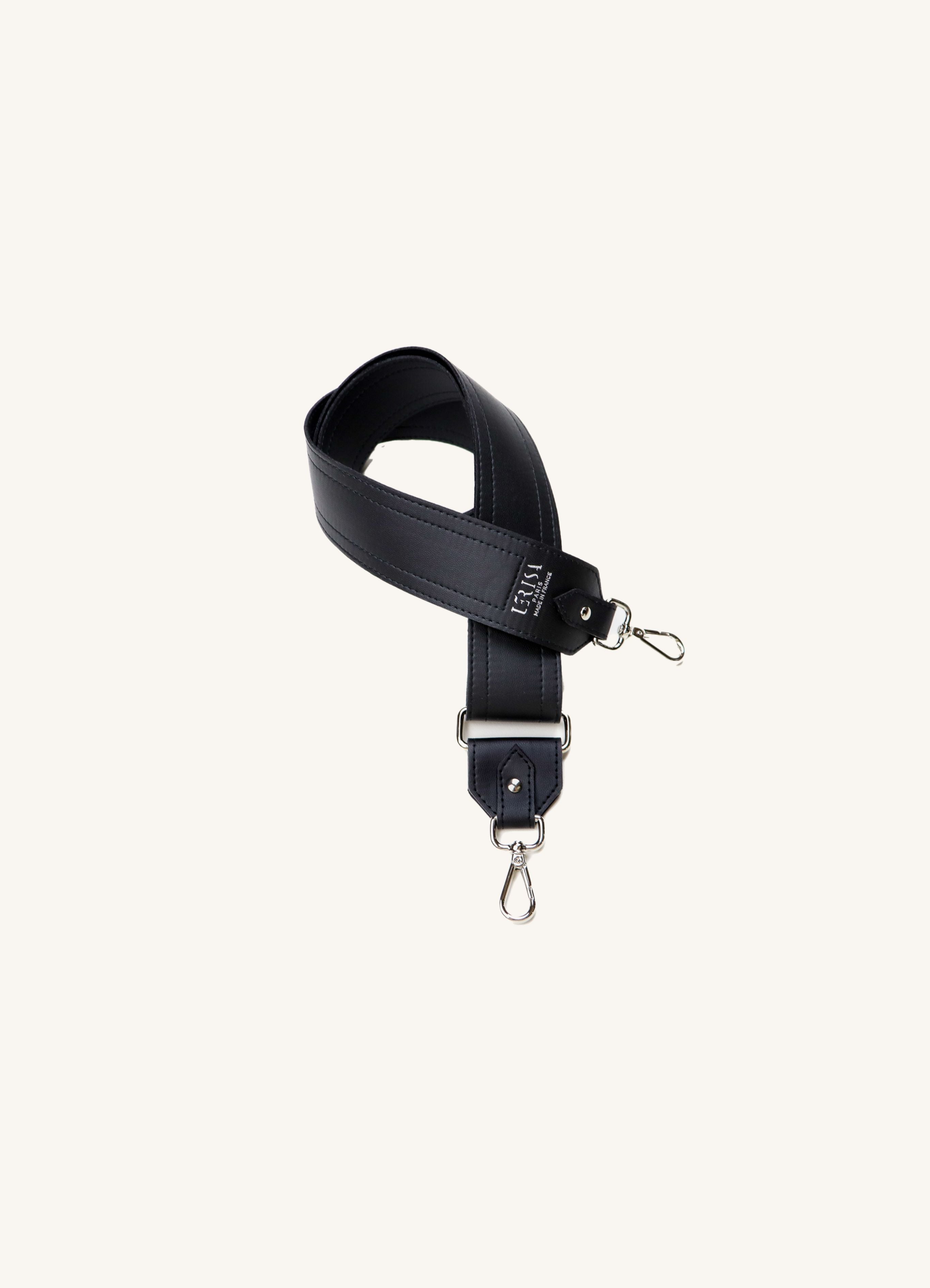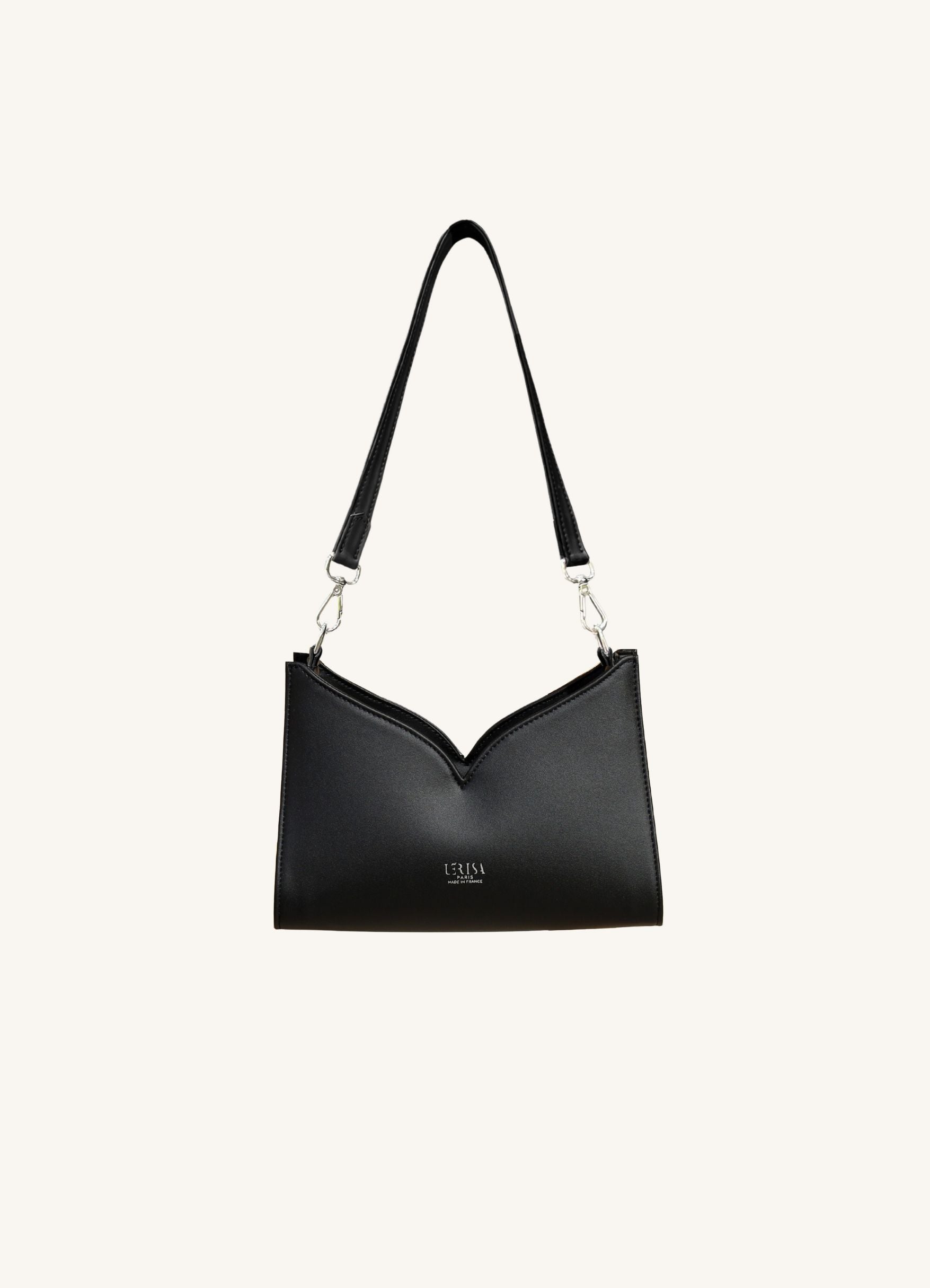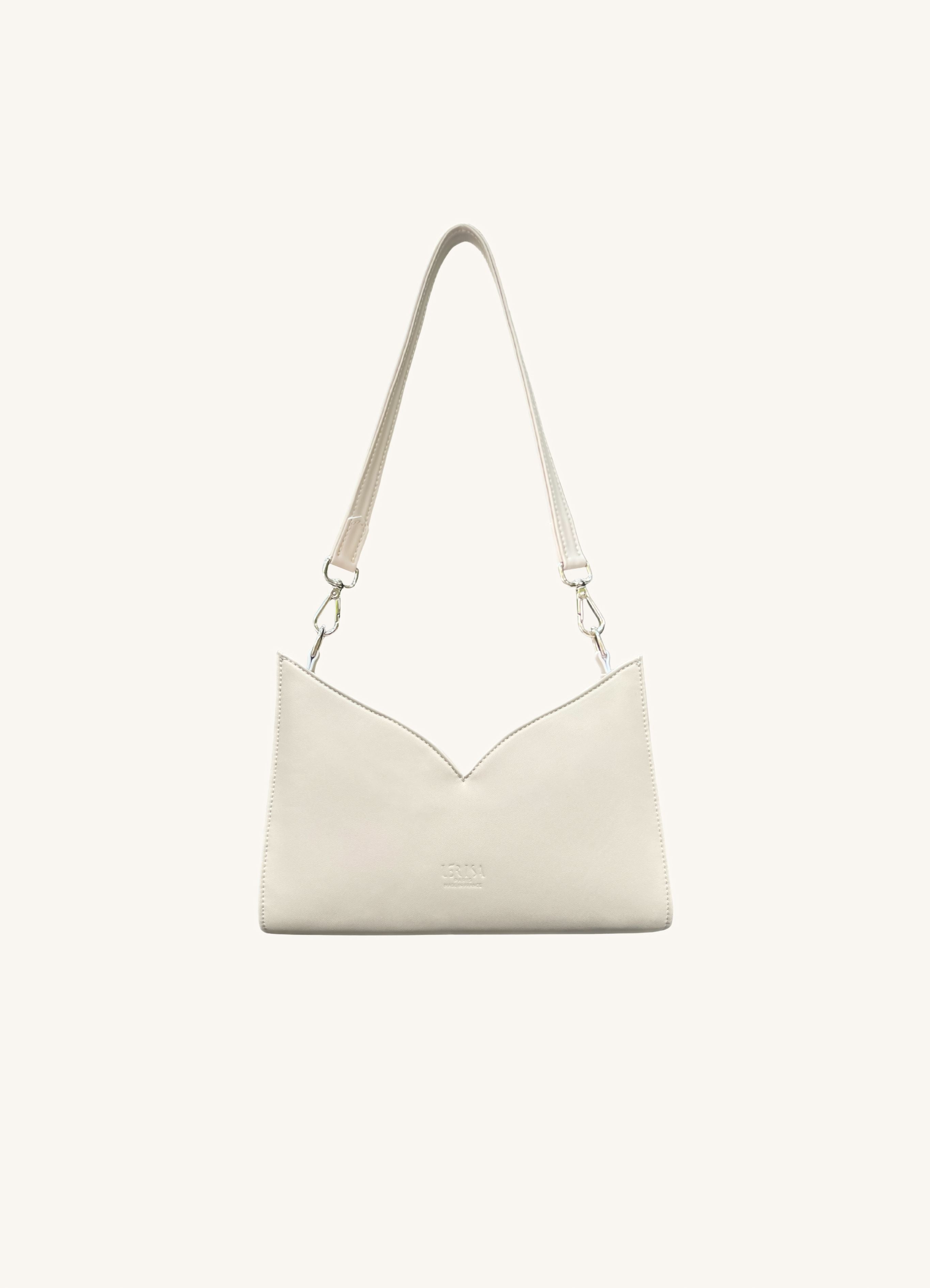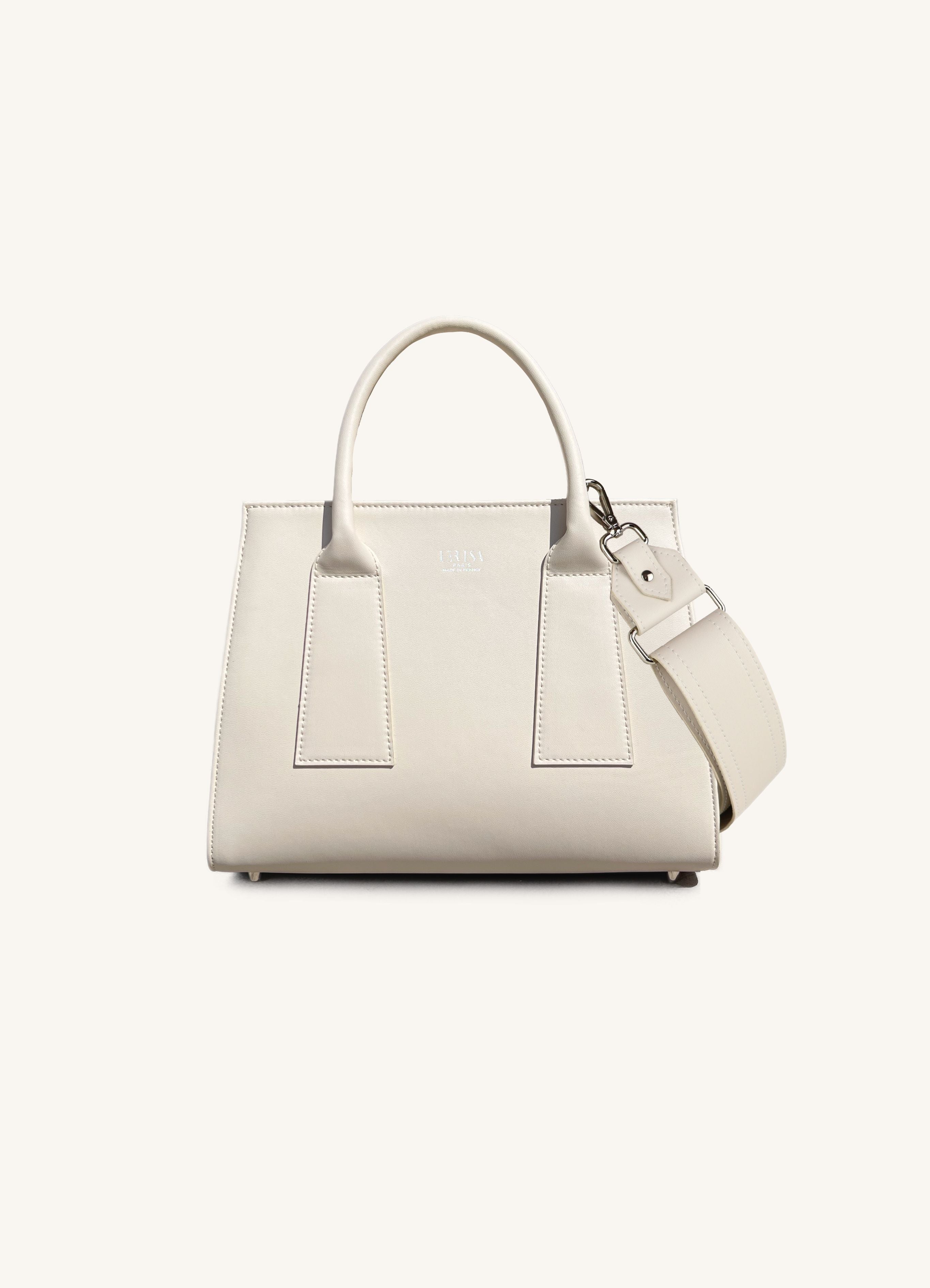Ethics, a term we encounter in social debates, professional choices, and even our everyday purchases, often remains vague. Yet, it silently shapes our way of being in the world.
Far from being an abstract theory reserved for philosophers, ethics guides our simplest actions , our most ordinary decisions: what we choose to consume, the way we treat others, the way we respect life, in all its forms.
At Lérisa , this reflection is anchored in each of our choices. Because yes, in a world in search of meaning, even the way of creating a bag can become an ethical act .
What is ethics?
Ethics is a personal reflection on what is just or unjust, good or bad. It guides our behavior, our decisions, and how we interact with others. It is rooted in our values, our principles, and our conscience. Far from being a simple theory, it is lived daily and allows us to build a harmonious and respectful community.
The word "ethics" originally comes from the Greek ethos (morals, way of being). It is often associated with morality, the term of which comes from the Latin mores . These two notions are close, but ethics tends to be part of a more personal and contextual reflection, whereas morality is often perceived as a set of general rules imposed by a society or a religion.

The philosophical origins of ethics
Ethics has its roots in Greek thought, particularly Aristotle, who defined an ethical life as one oriented toward goodness and virtue. Since then, many philosophers, thinkers, and religious figures have contributed to enriching ethical reflection by questioning our choices, our responsibilities, and our relationships with others.
What is an ethical principle?
An ethical principle is a fundamental value or rule that guides our decisions . It can apply to an individual as well as to an organization. These principles are essential for the proper functioning of society, as they ensure a certain justice, fairness, and consistency in our behavior. They are also a source of personal satisfaction: acting in accordance with one's principles provides a deep sense of alignment and inner peace .

What are the principles of ethics?
There are several ways of interpreting ethics, but certain universal values seem to transcend cultures and eras:
- Respect for human dignity and fundamental rights: protecting life, liberty, security, freedom of expression...
- Responsibility and integrity: being honest, acting fairly, assuming the consequences of one's actions
- Kindness , or concern for the well-being of others
- Justice and equity , for equal treatment without distinction
These principles are not limited to major political decisions: they are part of our daily lives . Buying an environmentally friendly product, choosing non-animal materials, supporting local production... these are all actions that reflect a lived ethic.

Different types of ethical principles
There are many types of ethical principles that can be applied to various situations. These include consequentialist principles , which focus on the results of an action; duty-based principles, which focus on people's obligations; virtue-based principles , which focus on an individual's character traits; and rights-based principles , which emphasize that individuals have inherent rights that must be recognized and respected.
It is important to consider all of these ethical principles when making decisions to ensure that everyone involved is treated fairly and with respect.
What is the role of ethics in our daily lives?
Ethics plays a fundamental role in our daily lives by helping us determine what is right and morally correct . It is a compass that guides us in our actions and instant decisions, ensuring that we treat others with respect and dignity. Ethics allows us to build positive and lasting relationships with others, and to live in harmony with ourselves and our environment.
But it's not just about personal relationships. Ethics is also important in professional settings , where it helps establish fair and ethical standards for employers and employees. This can include issues such as protecting workers' rights, preventing conflicts of interest, and promoting transparency and accountability.
Ethics is an indispensable tool for educating and moving individuals and societies toward a more just and equitable future. It is a source of inner peace and personal satisfaction, as well as a guarantee of positive and lasting relationships with others.

Ethics plays an important role in humane working conditions because it defines the moral standards that govern the relationship between employers and employees . Employers have a moral responsibility to treat their employees fairly and provide them with a safe and healthy work environment. This includes fair compensation, protection from discrimination, training and professional development opportunities, and time off for personal and family life.
Ethics also requires employers to comply with labor laws and regulations, such as labor rights laws and occupational health and safety standards. Employers must prevent abuses and inequalities, such as inhumane working conditions and discrimination based on race, gender, religion, sexual orientation, etc.
Finally, ethics also requires companies to take responsibility for the consequences of their activities on employees, local communities, and the environment. Companies must operate responsibly to ensure a positive impact on all stakeholders.
Ethics is a fundamental element of humane working conditions, as it defines the moral standards that underlie relationships between employers and employees, and helps ensure fair and equitable treatment for all.

Ethics in Business: Beyond Marketing
Today, talking about ethics in a company is no longer a communication argument: it is a requirement.
This means:
-
A sincere respect for the people who make our products
-
Transparency in our commitments
-
A desire to limit our environmental impact
-
And above all, consistency between our words and our actions
At Lérisa , this translates into 100% French manufacturing , a deliberate choice not to use animal leather, and a constant search for sustainable alternatives, without compromising on elegance.
Ethics towards animals: a modern responsibility
Refusing to use leather isn't a stance, it's a conviction. Because elegance should never come at the expense of life.
In our approach, ethics towards animals is not about pointing fingers, but about proposing another way : a respectful, innovative, cruelty-free fashion, which demonstrates that we can create beauty without suffering.
Towards more ethical consumption
What if our purchases also became acts of commitment? What if choosing a bag, a piece of clothing, or a piece of jewelry became a way of saying, "I want to support a different way of producing"?
Ethics is everywhere. It's in the choice of a craftsman, in the slowness of a gesture, in the beauty of a product made with conscience.
In conclusion
Ethics is not a dogma; it's a direction. A direction we freely choose, every day. It pushes us to do better, to live better, to create better.
This is the philosophy we embody through our creations . Elegant pieces, designed with respect, thought out with meaning.
Because a beautiful object is never trivial when it tells a story of commitment.


 The Black Lérisa Bag
The Black Lérisa Bag












Leave a comment